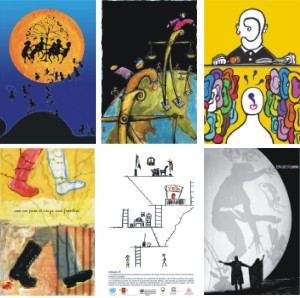For Your Information
Reflection of UDHR in our Constitution
 |
Source:ohchr.org |
The Universal Declaration of Human Rights (UDHR) has inspired numerous treaties, statutes, constitutional structures in creating human rights provisions all over the world since 1948. The Constitution of the People's Republic of Bangladesh could not escape the magic spell of UDHR like the other treaties and conventions around the world.
In Part III of our Constitution which states the fundamental rights of the nation, many provisions of UDHR has been adopted. In this writing, we will explore those articles of the Constitution which are based on the UDHR provisions.
Article 27 of our Constitution provides for equality of citizens before the law and also provides for equal protection of law and Article 31 elaborates on the right to protection of law. This Article is similar to Article 7 of UDHR which states that, 'All are equal before the law and are entitled without any discrimination to equal protection of the law'.
Article 28 of the Constitution provides for protection from discrimination which lies at the heart of UDHR.
Article 29 of the Constitution states that, there shall be equal opportunity for all citizens in respect of employment. This provision is quite similar to Article 23 of UDHR.
Article 32 of our Constitution provides for the protection of right to life and personal liberty. Same provision can be found in Article 3 of UDHR.
Article 33of our Constitution ensures safeguards as to arrest and detention which is like Article 9 of UDHR: 'No one shall be subjected to arbitrary arrest, detention or exile'.
Article 34 of the Constitution prohibits all forms of forced labour and Article 4 of UDHR provides that, 'No one shall be held in slavery or servitude; slavery and the slave trade shall be prohibited in all their forms'. Article 4 of UDHR has been further elaborated in Article 8(3) (a) of ICCPR (which enhanced the achievements of UDHR), 'No one shall be required to perform forced or compulsory labour'.
Article 35 of the Constitution provides for protection in respect of trial and punishment which extends to a defendant's right to be tried publicly and by an independent and impartial court or tribunal. This provision is covered by Article 10 of the UDHR. Another matter is covered by article 35(5) of the Constitution whereby, 'No person shall be subjected to torture or to cruel, inhuman or degrading punishment or treatment'. Article 5 of UDHR has the same proviso.
Article 36 of our Constitution and Article 13 of UDHR provides for freedom of movement. Article 37 and Article 38 of the Constitution ensures freedom of assembly and association both of which are contained within Article 20 of UDHR.
Article 39 of our Constitution guarantees freedom of thought and conscience and of speech which is also guaranteed by Article 18 of UDHR.
Article 43 ensures protection of home and correspondence which is also mentioned in Article 12 of UDHR.
Thus it can be said that the fundamental rights given to the nation by our Constitution is that of international standard and we expect nothing but the proper implementation of the Rights guaranteed by our Constitution.
-Compiled by Law Desk.